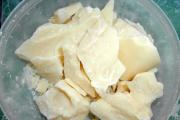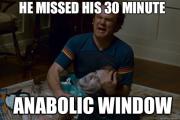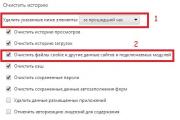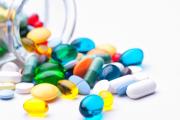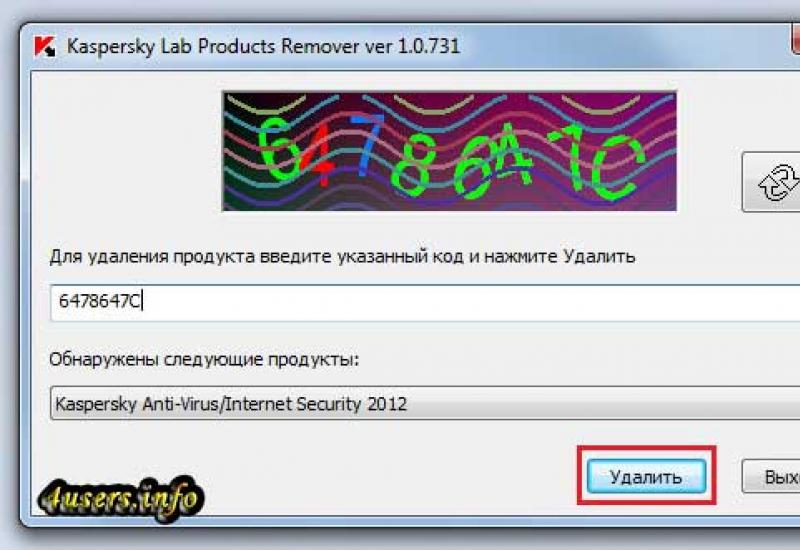How and what to eat and drink after training?
Zozhnik presents recommendations from the most authoritative sports organizations in the world regarding optimizing nutrition after training: when, what and in what quantities to eat and drink in order to recover after training as quickly as possible.
It is worth noting that this material is not related to the so-called anabolic window, but is only a summary of recommendations for optimizing the recovery process from the world's leading organizations. The existence of an anabolic window is very doubtful, and our upcoming book devotes an entire chapter to this issue.
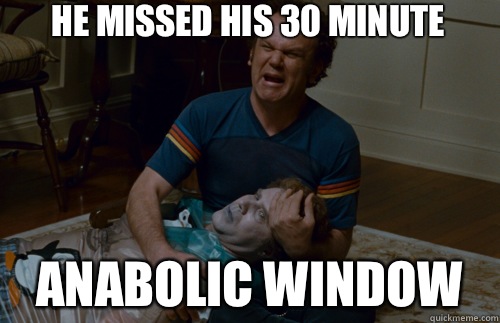
Research data that examines how dietary timing affects recovery and adaptation to training can optimize recovery processes and help athletes achieve maximum results. At the same time, there are no universal recommendations for everyone, because what and in what quantity to eat in general and specifically after training depends on factors such as the type of sport, frequency and intensity of training, food consumption before and/or during training, body composition, goal person, environmental conditions, and so on.
Before we get into specific nutrient intake recommendations (protein, fat, and carbohydrates) post-workout, it is important to emphasize that in order to achieve your goals, you must first consume adequate total amounts of protein, fat, and carbohydrates per day. After all, for example, if you consume the recommended amount of carbohydrates immediately after training, but do not get the total daily amount of this nutrient adequate to your activity level and goals, your efforts will not pay dividends.
Table of daily carbohydrate needs
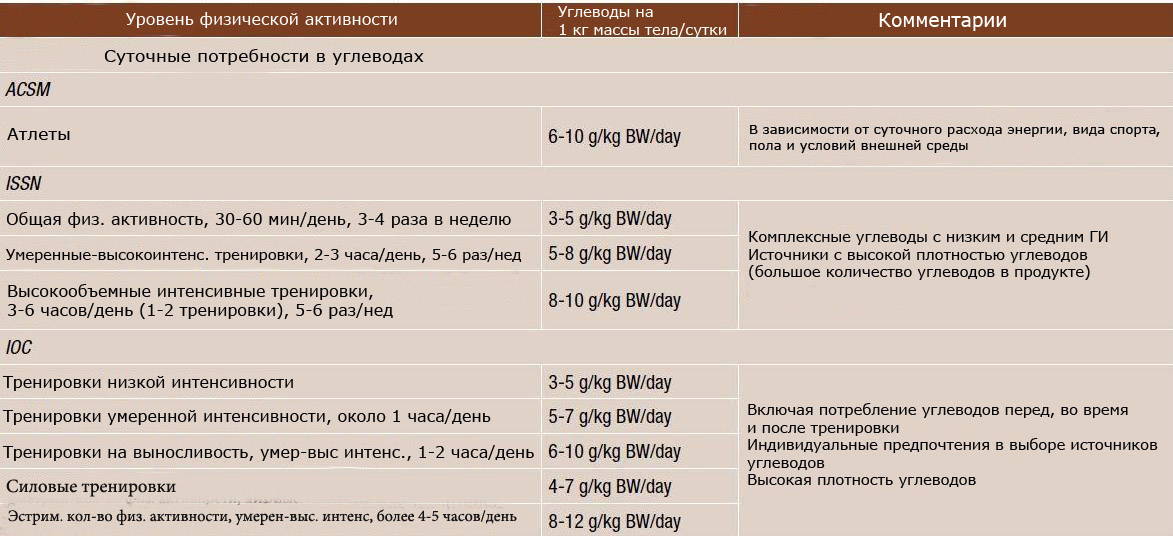
As you can see from the table, the American College of Sports Medicine (ACSM) provides general recommendations for athletes, while the International Society of Sports Nutrition (ISSN) gives more specific figures for the amount of carbohydrate intake - depending on the frequency, duration and intensity of training. However, the International Olympic Committee (IOC) provides even more specific figures, distinguishing carbohydrate needs depending on the type of training.
Daily protein requirements
The ACSM recommends consuming 1.2-1.4 g of protein per kg of body weight for endurance trainees and 1.6-1.7 g of protein for resistance trainers. At the same time, sports organizations such as ISSN and NASM (National Academy of Sports Medicine) recommend consuming more protein for physically active people - up to 2 grams per 1 kg of weight. We remind you that 3-4 fitness workouts per week is an average level of activity, which means you need to eat no more than 1.7 g of protein per kg of body weight.
Carbohydrate intake after exercise
To restore glycogen reserves as quickly as possible, ACSM, ISSN and IOM recommend consuming 1-1.5 g of carbohydrates per 1 kg of athlete’s body weight in the first 30 minutes after training. However, if 24-48 hours pass between training or sporting events, the carbohydrate timing strategy is not so important. After all, if within 24 hours a person has consumed the daily amount of carbohydrates adequate to his goals and activity level, glycogen reserves will be restored even without urgent consumption of carbohydrates immediately after training.

The fastest restoration of muscle glycogen stores is very important if a person trains or takes part in sports activities less than 8 hours apart. For example, an athlete who trains twice a day. In this case, to quickly restore energy reserves, ACSM, ISSN and IOC recommend consuming a portion of carbohydrates in the first 30 minutes after exercise, as well as every 2 hours for a 4-6 hour period, as indicated in the table below.
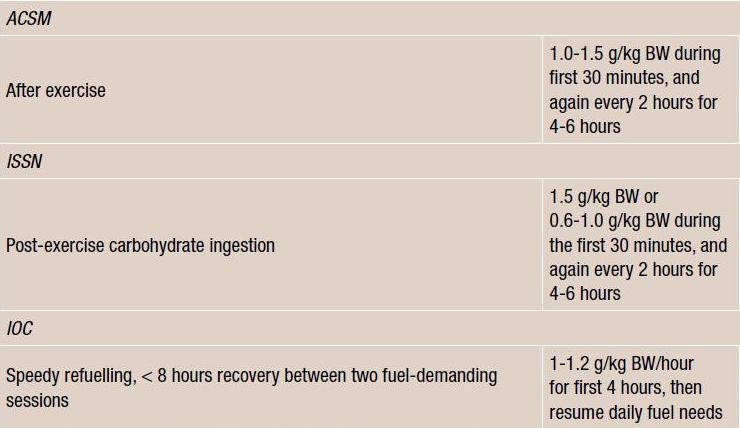
Certified nutritionist Marie Spano notes that for the fastest recovery of glycogen stores, immediately after exercise, you need to consume carbohydrates with a high glycemic index (for example, juice, baked goods).
The NSCA Sports Nutrition Guidelines note that both liquid and solid forms of carbohydrates provide identical results in terms of glycogen restoration. However, it is not recommended to consume large amounts of fructose after training, since this type of carbohydrate is associated with lower levels of glycogen restoration in muscles compared to other sources of “simple” carbohydrates.
Protein intake after exercise
Experts from the ACSM, ISSN, and IOM agree that consuming approximately 20 grams of protein along with carbohydrates within the first 30 minutes after exercise optimizes recovery. It is noted that the use of sports supplements in this case is not justified, because these nutrient needs can be met without problems through the consumption of regular food.
To optimize recovery after training, the International Society of Sports Nutrition recommends adding a serving of protein to carbohydrates at a rate of 0.2-0.5 g/kg body weight.

Experts from the International Olympic Committee recommend consuming 20-25 g of protein immediately after training. The preferred post-workout form of protein for IOM is low-fat milk. Experts from the NSCA note that after training it is necessary to give preference to dairy products, as well as eggs.
The NSCA Sports Nutrition Guidelines also indicate that increased glycogen resynthesis (as well as protein synthesis) occurs as a result of co-consuming protein with carbohydrates. It is noted that the total amount of carbohydrates consumed is the main factor that contributes to the restoration of glycogen.
Restoration of water and electrolyte balance
Replenishing fluids and electrolytes is one of the most important tasks after exercise. The ACSM's position on fluid replenishment states that regular food intake with added salt plus a serving of water will be sufficient to replace fluid and salt losses. Consuming a small amount of salt will help retain fluid in the body and stimulate the feeling of thirst.
It is noted that, unlike water loss, salt loss during exercise is very difficult to assess. Moreover, it has been found that people lose different amounts of salt through sweat. Drinking sodium-containing sports drinks may be an option, although a regular salty meal you eat post-workout will easily replenish sodium loss.
One of the simplest ways to assess fluid loss during exercise is to weigh yourself before and after your training session. If a person needs to replenish fluid loss as quickly as possible and return his hydration status to normal, then within 4-6 hours after training he should drink approximately 1.5 liters of fluid for each kilogram of weight lost during the workout.

Experts from the NSCA note that evidence of a sufficient level of hydration is a copious amount of urine (urine) that is pale yellow in color. It should be borne in mind that if you take multivitamins, B vitamins, or eat beets, carrots or oranges, your urine will be darker, more saturated in color.



